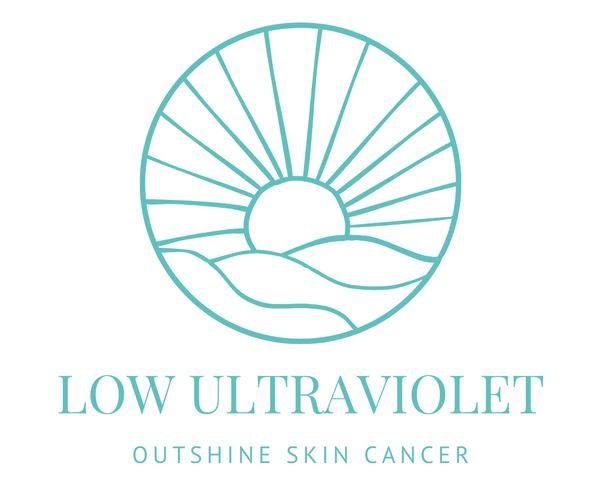Ultra Violette, a leading Australia-made sunscreen brand, recently found itself amid controversy when the consumer advocacy group, CHOICE, unveiled that the brand's popular Lean Sunscreen didn't provide the SPF rating as advertised. So, what's going on with Ultra Violette's Lean Sunscreen controversy?

Update August 22, 2025
Ultra Violette took to Instagram on August 22nd to share that Lean Screen SPF 50 has since been pulled from the market. This final recall came after new tests conducted by independent labs delivered varying SPF results, from a rating of 4 to 64. Read more about this update and the steps Ultra Violette is taking here.
The Facts
Earlier this week, claims came to light from CHOICE, an independent consumer advocate, that Ultra Violette's cult-favorite Lean Sunscreen, advertised as a SPF 50 product, only has a SPF rating of 4. Read the full report.
Ultra Violette launched in Australia in 2019 and has since become a leading provider of sunscreen-meets-skincare, not only in Australia but worldwide. Lean Screen SPF 50 is a cult-favorite SPF with a mattifying, cream zinc formula that is non-greasy and has zero white cast. The brand announced a partnership with Sephora earlier this year to expand its operations into the United States.
Australia is known for sun safety, often leading the way in both research and product innovations. This is because the "land down under" has the highest incidence rates of Melanoma in the world. For this reason, they've had to take sun safety very seriously.
Ultra Violette isn't the only brand receiving heat from the most recent report. In fact, 16 of the 20 sunscreens tested failed to meet their SPF as advertised, including the Neutrogena Sheer Zinc Lotion SPF 50. This statistic made us shake our heads, and you'll never believe what we learned from getting to the bottom of things.
The Customer's Response
If Lean Screen does protect as intended and advertised, consumer trust is shaken. One customer on Instagram commented that she has "exclusively used UV Lean Screen for the past 3+ years, and if the choice results are true, I shudder to think the UV damage to my skin!"
Another commented, "Come on, who are we going to believe — a beauty company trying to sell its own products, or an independent consumer group that’s been doing this for decades?"
These were just a few of the dozens of customers who took to Instagram to share their frustration. A general sense of mistrust flooded the comments section of Ultra Violette's most recent social media posts.
It's a confusing statistic that 16 out of 20 sunscreens tested failed to meet their SPF as advertised. As one customer stated, "16 out of 20 means we either have a massive problem with sunscreen manufacturers here or the test was simply wrong."
This last comment echoed exactly what our team thought as we investigated the controversy.
Ultra Violette's Response
Ultra Violette took to social media and their website to rebut claims from CHOICE.
Co-founder, Ava Matthews, shared that they have completed multiple tests for Lean Screen, both to Australian standards and one to FDA standards. Each of these tests was a robust study that confirmed Lean Screen achieved an SPF rating well above the protection necessary to advertise as having an SPF 50 rating.
On their website, Ultra Violette also shared their initial testing results from January 2021 and retesting results from April 2025. The retested product was from the exact batch that CHOICE used for their testing.
Here is where the confusion sets in. The retest was from the same batch and achieved an SPF rating of over 50 when completed for Ultra Violette and a SPF rating of 5 when completed by CHOICE. How is this possible?
Getting to the Bottom of Things
At this point, we know that Lean Screen is a mineral sunscreen with 22.75% zinc. This percentage alone seemingly makes a SPF rating of only 4 seemingly impossible. Lastly, we know that multiple tests were completed by both Ultra Violette and CHOICE.
Fasten your seatbelts.
Ultra Violette confirmed that not only did CHOICE perform a far less conclusive study and take the results as gospel, but they also decanted the zinc-based sunscreen and placed it into a new container before sending it off for testing. Everyone knows this is a huge no-no.
SPF results can vary based on different environmental conditions. This means that the individual user plays a huge role in sunscreen efficacy. On top of this, zinc sunscreens can be destabilized, and the sunscreens that performed the worst in the CHOICE study were mineral sunscreens.
Furthermore, not every lab test is created equally. Ultra Violette completed multiple 10-panel studies, whereas CHOICE completed a 5-person study in which some of the participants' results were inconclusive.
The decision for CHOICE to publish these findings after going through a multi-month process with Ultra Violette, in which they learned they destabilized the products before testing, is irresponsible. In fact, we saw similar claims trying to discredit a large sunscreen brand a few years ago from a Supergoop! class action complaint.
Final Thoughts
The bottom line: even if Lean Sunscreen does provide the SPF protection as advertised and intended, consumer trust is understandably shaken. This is extremely concerning as misinformation soars about the efficacy of sunscreen.
Now that you know all of this information, we encourage you to go back and read the full CHOICE article. The language used and blatant disregard for their errors in this process are concerning.
Irresponsible clickbait posts and studies like the one published by CHOICE give sun safety naysayers fuel to spread even more fear and hesitancy to responsibly protect our largest organ. We encourage everyone to seek out factual information, do their own research, and come to their own conclusions.
Up Next: What is Going on with the Supergoop! Class Action Complaint?
The Ultra Violette brand has no affiliation with Low Ultraviolet. This is an opinion piece to educate based on facts made accessible to the general public.

